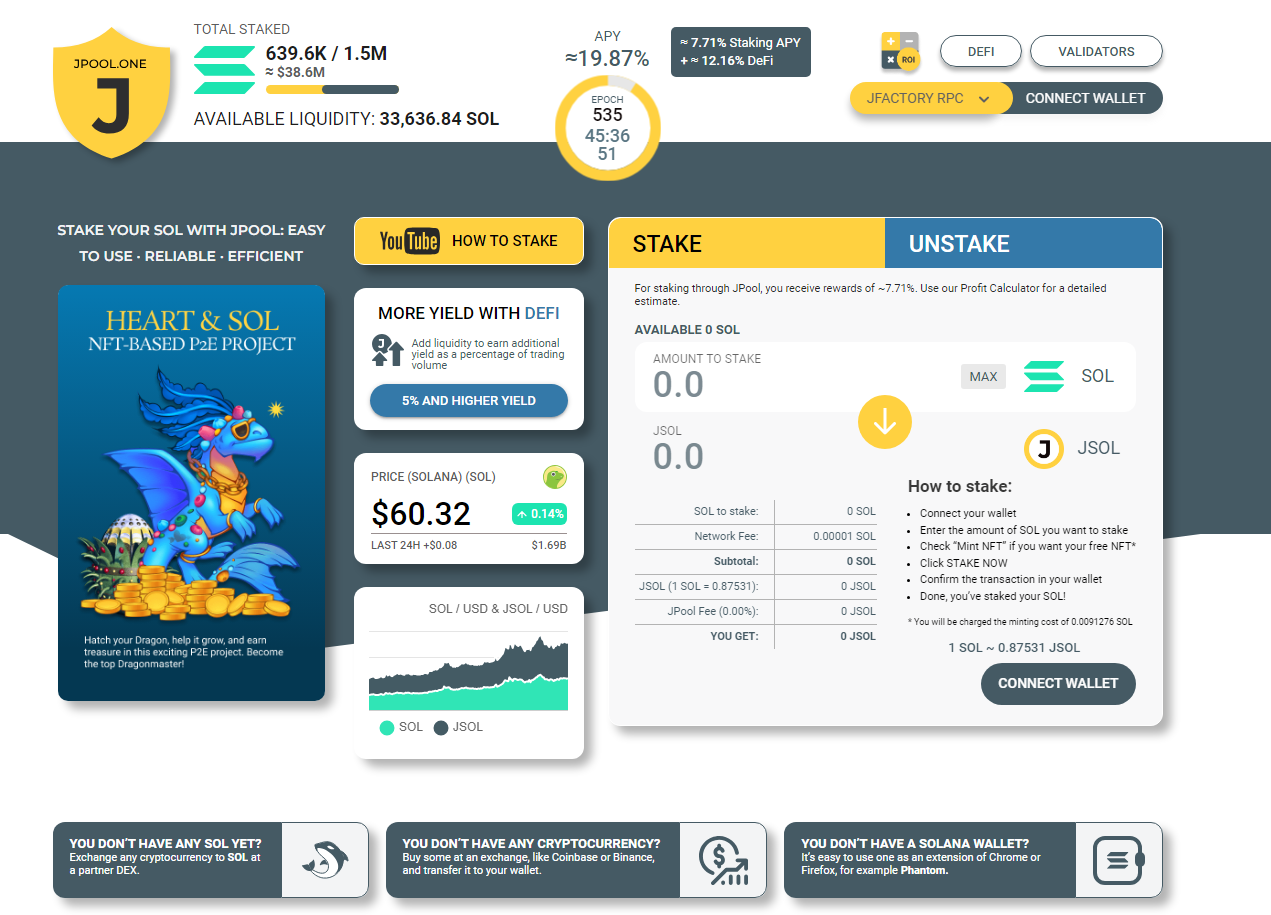What is JPool? JPool is a Stake Pool built on Solana’s network that allows users to stake SOL tokens safely, effectively, consuming few resources to manage and bringing optimal profits. So what’s special about the JPool project? Let’s find out through this article.
To better understand the project, people can refer to the analysis below:
- What is Solana (SOL)? Solana Cryptocurrency Overview
- Potential Next Generation Projects on Solana Ecosystem
- What is Proof Of Stake (PoS)? Advantages & Disadvantages Compared to Proof Of Work (PoW)
JPool Overview
What is JPool?
JPool is a Stake Pool built on Solana’s network that allows users to stake SOL tokens safely, effectively, consuming few resources to manage and bringing optimal profits. JPool uses Solana Foundation’s stake pool program to ensure users’ SOL numbers are always safe.
What is Staking Pool?

What is JPool?
Solana uses the Proof of Stake (POS) mechanism, so for the entire network to operate safely and effectively, there must be Validators who are responsible for authenticating transactions and creating blocks, this happens. output every 400 milliseconds. To become a Validator takes a lot of resources, not only in terms of people but also in terms of wealth. So for investors who are holding SOL and want to go long with the project, they can delegate the tokens they hold to Validators to be able to share the reward from each block created.
However, for Validators with bad intentions, they can authenticate invalid transactions for personal purposes. As a result, that Validator may be fined, affecting the number of tokens and rewards of those who authorized that Validator.
From there, the concept of Stake Pool appeared. Stake Pool is an on-chain pool managed by a manager. Users who deposit SOL will receive JSOL tokens as a token to guarantee the amount of SOL deposited. Manager will use the SOL number to allocate according to their strategy within the Validator network. In short, instead of staking tokens directly to Validators, users can stake in the Stake Pool and still receive all the same benefits as staking directly to Vailidator, but there is no need to worry. afraid about whether the Validator is honest or not.
Mechanism of action
Steps to delegate SOL tokens to JPool:
- Step 1: Create a staking account then send the SOL number you want to stake
- Step 2: You authorize your staking account to JPool
- Step 3: After a period of time, that SOL number has become operational. You receive back JSOL which is a token that guarantees the SOL amount previously staked.
The amount of JSOL in the wallet will remain constant, however the JSOL/SOL pair will continuously grow each time new rewards are awarded in the staking pool. Users can hold JSOL to participate in providing liquidity on major protocols on the Solana network such as: Raydium, Saber, Orca, Atrix…
In addition, users can unstake by swapping JSOL-SOL, JSOL-USDC pairs in platforms that support JSOL or unstake on JPool’s website.
Development Roadmap
Update…
Core Team
Update…
Investor
Update…
Tokenomics
Update…
Exchanges
Update…
Project Information Channel
- Twitter: https://twitter.com/JPoolSolana
- Website: https://jpool.one/
- Telegram:
Summary
The Solana ecosystem is proving itself to be a real builder of the Crypto market. Projects with new ideas are constantly springing up, JPool is one of them. These are just the first bricks of the project, so please accompany Hak’s team to update the latest future information about the project.


